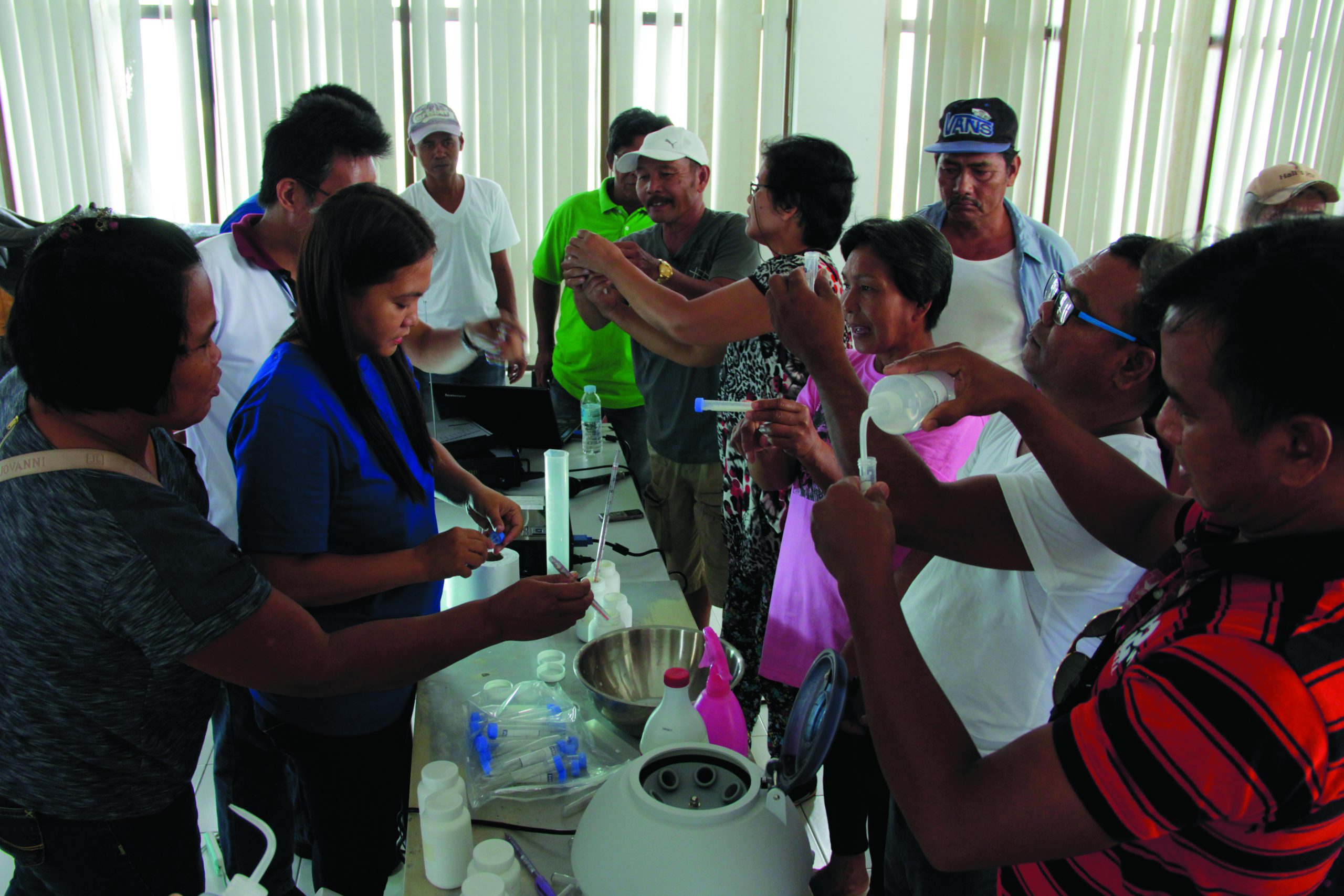PCC trains carabao’s milk traders on milk quality testing, safety assurance
by:

Thirteen carabao’s milk traders gained better understanding and skills on milk quality testing as well as on the safety assurance of consumers in a consultative meeting cum training held last June 9 at the PCC national headquarters in the Science City of Muñoz in Nueva Ecija. The meeting was aimed at encouraging the milk traders in Nueva Ecija in assessing and testing first the quality of milk they are buying and trading for the benefit of the consumers. According to Wilma del Rosario, PCC Senior Science Research Specialist and NIZ coordinator, a similar activity will be done quarterly as one of the ways in implementing the Food Safety Act. It will also serve, she added, as a preparation for those involved in the dairy industry for the implementation of the proposed Philippine National Standards for Hygienic Milk. “The milk traders also play a big role in strengthening niche markets for the carabao’s milk,” del Rosario said. The consultative meeting also involved discussions on “Assessment of Milking and Handling Practices along the Milk Value Chain in Nueva Ecija Cum Food Safety Act of 2013”, led by Mina Abella, supervising science research specialist, and “Milk Quality Evaluation and Standards”, led by Frederick Bacani, science research assistant. The participants in the event were from the cities of Palayan and Cabanatuan and from the towns of Talavera, Quezon, and Aliaga. As traders, they procure the carabao’s milk from the dairy farmers in different places and supply it to the milk processors in Talavera, Cabiao, Bulacan, Pampanga, and Tarlac. As part of the event, they were allowed to do actual milk quality testing through organoleptic tests and other essential tests under the supervision of Daisy Flores, science research assistant. After the training, each of the participants received a milk testing kit. The kit included a lactometer, graduated cylinder (250 ml cap), 10 pieces of conical tube (15 ml cap), one set of computed specific gravity table, one bottle of 60% ethanol (500 ml), one pipette (10 ml), one recording logbook, and a bottle of 70% ethyl alcohol.











